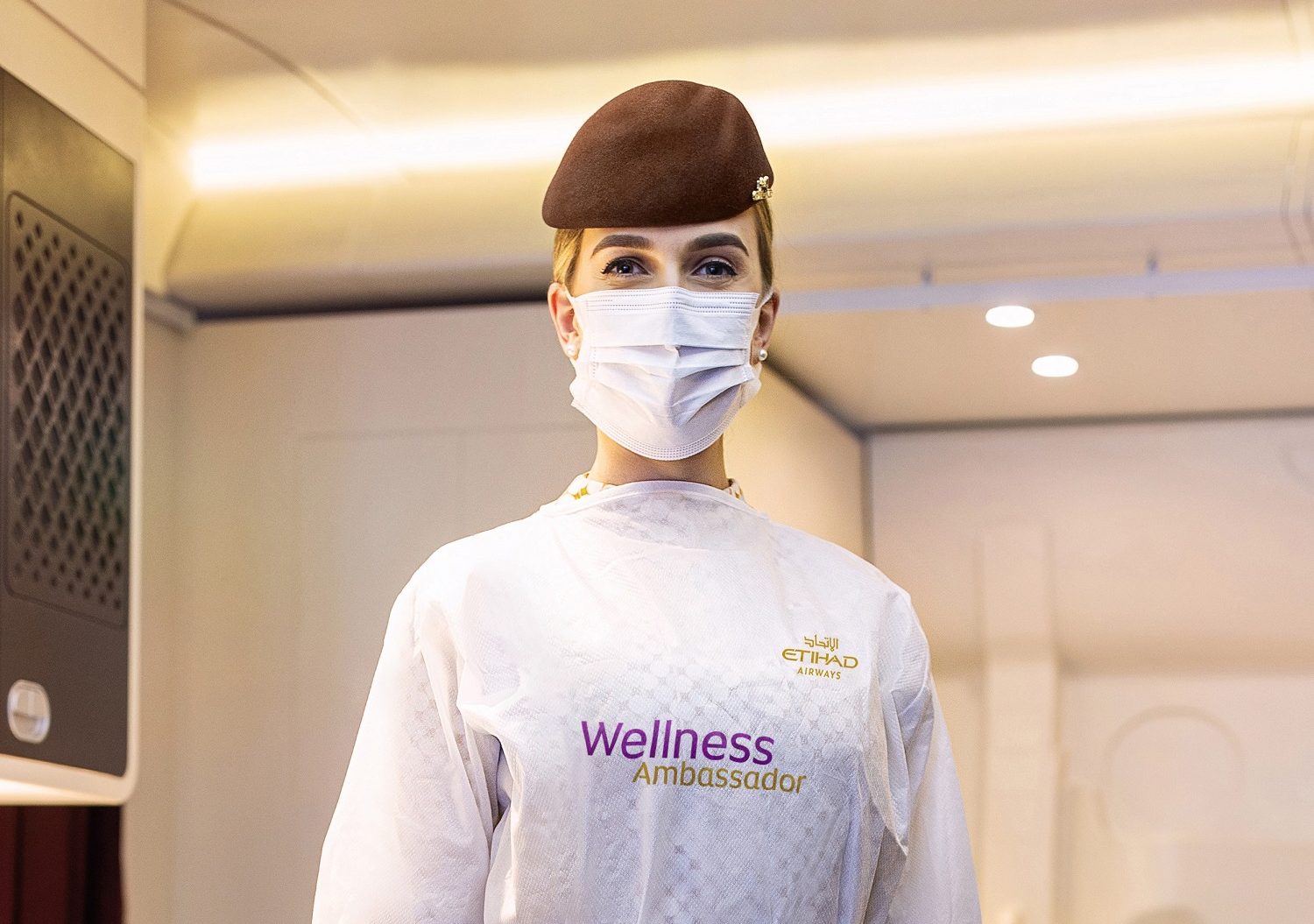
Etihad Airways said on Tuesday that it had opened its own surgical face mask production facility with the aim of producing 1.3 million masks over the next three months. The masks, which are certified to offer 98 per cent filtration, will go to the airline’s flight attendants and other frontline employees, as well as healthcare workers across the United Arab Emirates.
Produced by the airline’s engineering division, the in-house masks were medically certified by two certifying bodies – the Laboratorio Analisi Tecnal of Italy and China’s CNTAC, according to Haytham Nasir of Etihad engineering.
Etihad says it can produce as many 20,000 of the three-layered masks, complete with an embossed Etihad logo, per day using fully automated machines. The World Health Organization recommends that surgical masks are worn just once and the typical time that such a mask is good to wear is just four hours.
Airlines around the world have scrambled to bulk buy as many surgical face masks as possible in order to protect their employees and customers. However, many of the paper masks currently used by airlines are slightly below the standard used in healthcare settings and some carriers have resorted to issuing reusable cloth masks to prevent stripping medical professionals of vital supplies.
“Since the start of the pandemic, we witnessed consistent demand for face masks at the workplace,” commented Nasir, vice president of airframe services at Etihad engineering.
“With the safety, health and wellbeing of our customers and employees our paramount concern and top priority, we saw an opportunity to be self-sufficient,” he continued. Nasir also said the airline was willing to produce the masks for third-party customers and suppliers.
As airlines struggle to recover from the COVID-19 pandemic, more carriers are branching out into unusual revenue-generating streams. Qantas has taken to selling pyjamas and care packages, as well as fully-stocked bar carts, while Thai Airways has opened a cafe and is offering cookery classes.
Singapore Airlines, meanwhile, turned one of its Airbus A380’s into a pop-up restaurant, launched an at-home meal delivery service and offered tours of its flight attendant training academy.
Mateusz Maszczynski honed his skills as an international flight attendant at the most prominent airline in the Middle East and has been flying ever since... most recently for a well known European airline. Matt is passionate about the aviation industry and has become an expert in passenger experience and human-centric stories. Always keeping an ear close to the ground, Matt's industry insights, analysis and news coverage is frequently relied upon by some of the biggest names in journalism.







